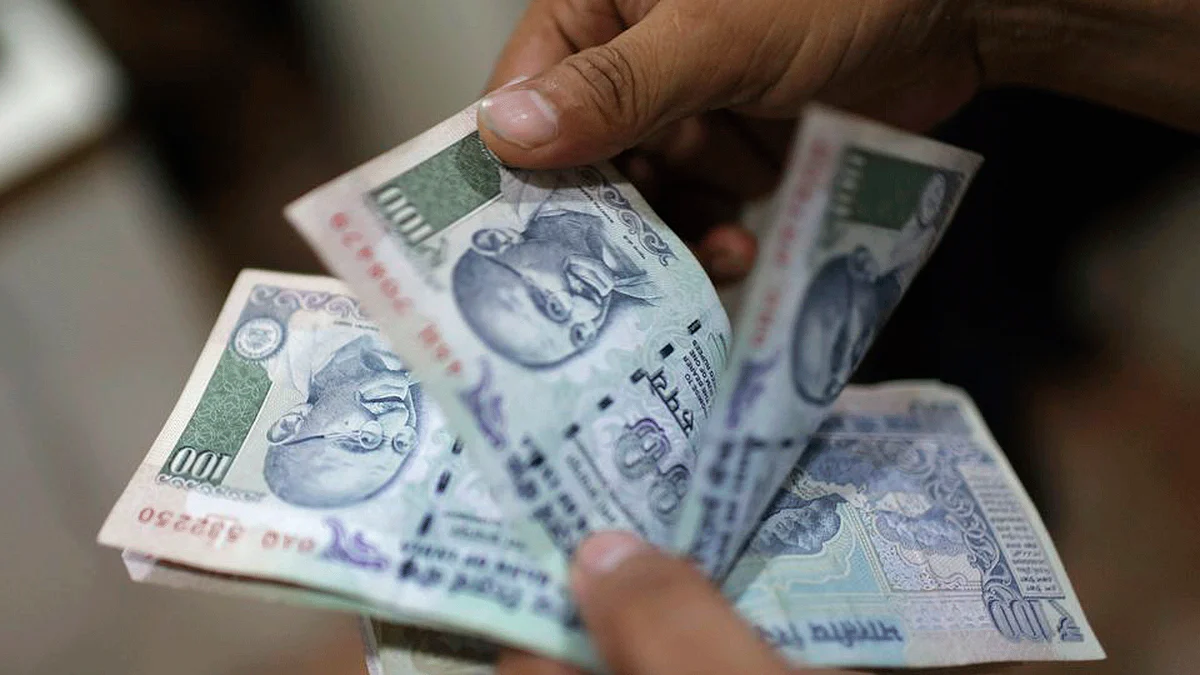QBiz: RBI Cuts Repo Rate by 25 Basis Point; Rupee Hits 2-Year High
Top business stories of the day.

advertisement
1. RBI Cuts Repo Rate by 25 Basis Points
The monetary policy committee (MPC) of the Reserve Bank of India (RBI) on Wednesday cut its key policy rate by 25 basis points (bps), citing a sharp fall in consumer price inflation and the need to boost investment demand in the economy.
MPC reduced the repo rate, at which the central bank infuses liquidity in the banking system, to 6 percent, the lowest since November 2010, from 6.25 percent. The panel maintained its forecast for gross value-added growth, a measure of economics output, for the current fiscal year at 7.3 percent.
Source: Livemint
2. Rupee Hits Over 2-Yr High, Foreign Lenders Sell Dollars
The Indian rupee strengthened to its highest in more than two years amid heavy selling of dollars by foreign banks, with the central bank decision to cut interest rates having only a limited impact, according to traders.
The dollar had briefly touched a 15-month low against a basket of major currencies on Tuesday, though it bounced modestly on Wednesday.
The rupee rose to as much as 63.59 per dollar, its strongest level since 22 July 2015, from its close of 64.0750 on Tuesday. It ended trade at 63.69.
Source: Reuters
3. Ramdev to Launch Patanjali Branded Clothes, Eyes Rs 5,000 Crore in Sales
Branded clothes from Baba Ramdev, coming soon to an apparel store near you.
After food, medicines and cosmetics, the yoga guru-turned-tycoon who discovered the business potential of everything homegrown is ready to raid the next big consumer market: branded apparel.
Ramdev’s Patanjali Ayurved Ltd is preparing to launch its ‘swadeshi” line of clothes for men, women and children by April, his spokesperson SK Tijarawala said. The sales target for the first year: Rs 5,000 crore.
Source: Livemint
4. NSEL Scam: SEBI Finds Executives At MCX, 63 Moons Guilty
The market regulator has held directors and top executives of companies related to Jignesh Shah, founder of India’s biggest commodity exchange, guilty of insider trading when the National Spot Exchange scam unravelled.
The executives sold shares of the Multi Commodity Exchange Ltd, then promoted by Shah, and NSEL’s parent, now called 63 Moons Technologies Ltd, based on unpublished price-sensitive information to avoid losses, the Securities and Exchange Board said in two separate orders. It ordered to impound the losses averted, along with 12 percent interest.
The executives include relatives of Shah and Shreekant Javalgekar, former managing director and chief executive officer of the MCX.
Source: BloombergQuint
5. RBI Panel To Work On A Better Mechanism To Track Credit Quality
The Reserve Bank of India will constitute a task force to suggest ways to track the quality of credit in a better manner as Indian lenders battle mounting bad loans.
The task force, comprising experts and major stakeholders, will help in assessing the gaps that could be filled through a public credit registry, the central bank announced as part of its developmental and regulatory policies.
The regulator has already created a Central Repository of Information on Large Credits to track large exposures. It also has a comprehensive Basic Statistical Return database with granular account-level information on credit.
Source: BloombergQuint
6. Snapdeal 2.0 to Cut Company's Workforce From 1,200 to 500-600 Staffers
Snapdeal may trim its workforce to half from the current 1,200 employees over the next few months as it pursues an "independent" path post calling off merger with bigger rival Flipkart, according to company sources.
After turning down Flipkart's $900-950 million offer earlier this week, the e-commerce firm has started working on its new roadmap which it calls 'Snapdeal 2.0'.
Snapdeal will trim its operations over the next 2-3 months, the workforce could be pared to about 500-600 people, two people familiar with the company's plans said.
Source: PTI
7. Arun Jaitley Indicates Scope for Rationalisation of Rates Under GST
Finance minister Arun Jaitley on Wednesday said there is scope to rationalise goods and services tax (GST) and rolling 12 percent and 18 percent slabs into one as implementation of the country’s most comprehensive indirect tax reforms progresses.
The current GST has 5 percent, 12 percent, 18 percent and 28 percent rates, plus one for luxury and sin goods. There are some that are zero rated, or nil rate.
Source: The Economic Times
8. After Diesel and LPG, Government to Now End Subsidy on Kerosene
The government has taken further steps to gradually reduce subsidy on kerosene, continuing the series of market-oriented reforms that have galvanised the petroleum sector and attracted big-ticket investment after an era of excessive controls, controversies and untargeted subsidies that made it difficult for private companies to operate.
The oil ministry had earlier ordered a similar increase only up to July this year. Delhi and Chandigarh are already kerosene-free cities.
Source: The Economic Times
9. NCLT Admits Insolvency Petition Against Essar Steel
In another setback for Essar Steel, the Ahmedabad bench of National Company Law Tribunal (NCLT) on Wednesday admitted the insolvency petition against the defaulter company filed by lenders State Bank of India (SBI) and Standard Chartered Bank (SCB) in a common order.
Through the order, the NCLT bench rejected Essar Steel's plea to not initiate insolvency proceedings against the company under the Insolvency and Bankruptcy Code (IBC) 2016, since a debt-restructuring plan was underway with the lenders.
SCB and SBI had independently filed applications for initiating insolvency proceedings against Essar Steel at NCLT's Ahmedabad bench for outstanding dues of over Rs 34,000 crore.
Source: Business Standard
(At The Quint, we question everything. Play an active role in shaping our journalism by becoming a member today.)